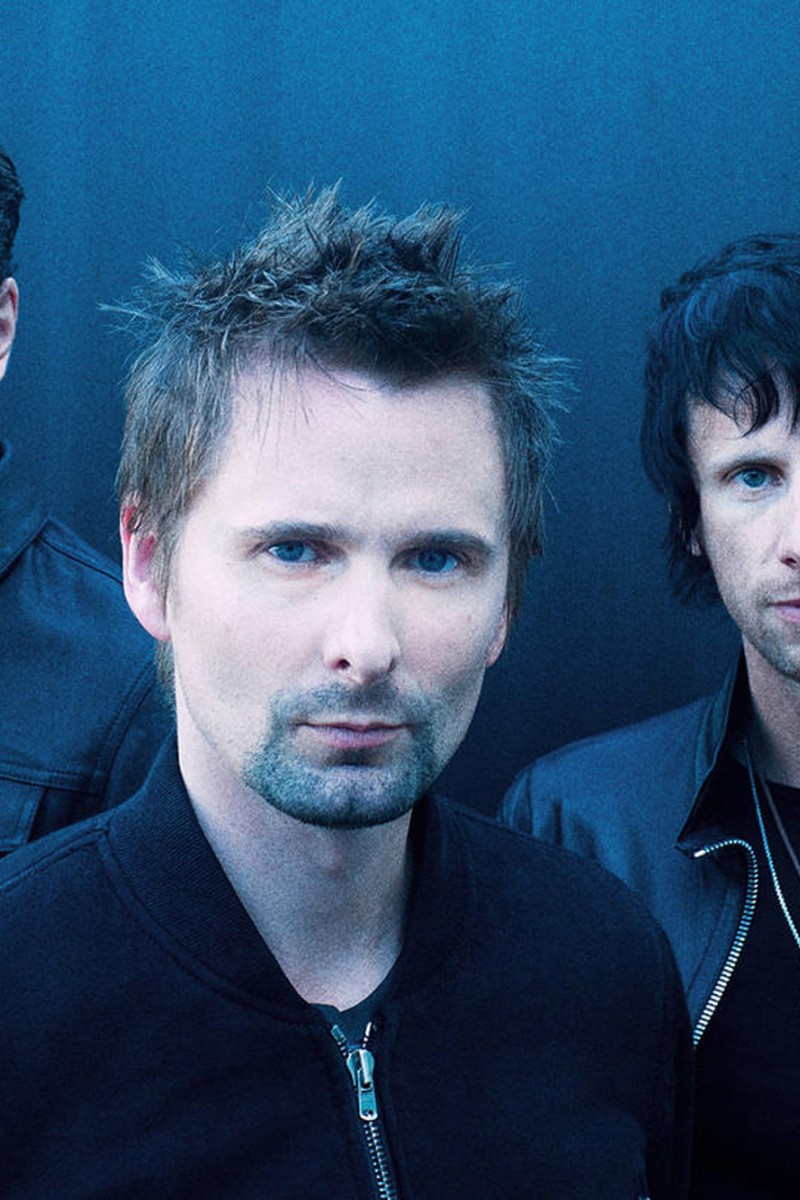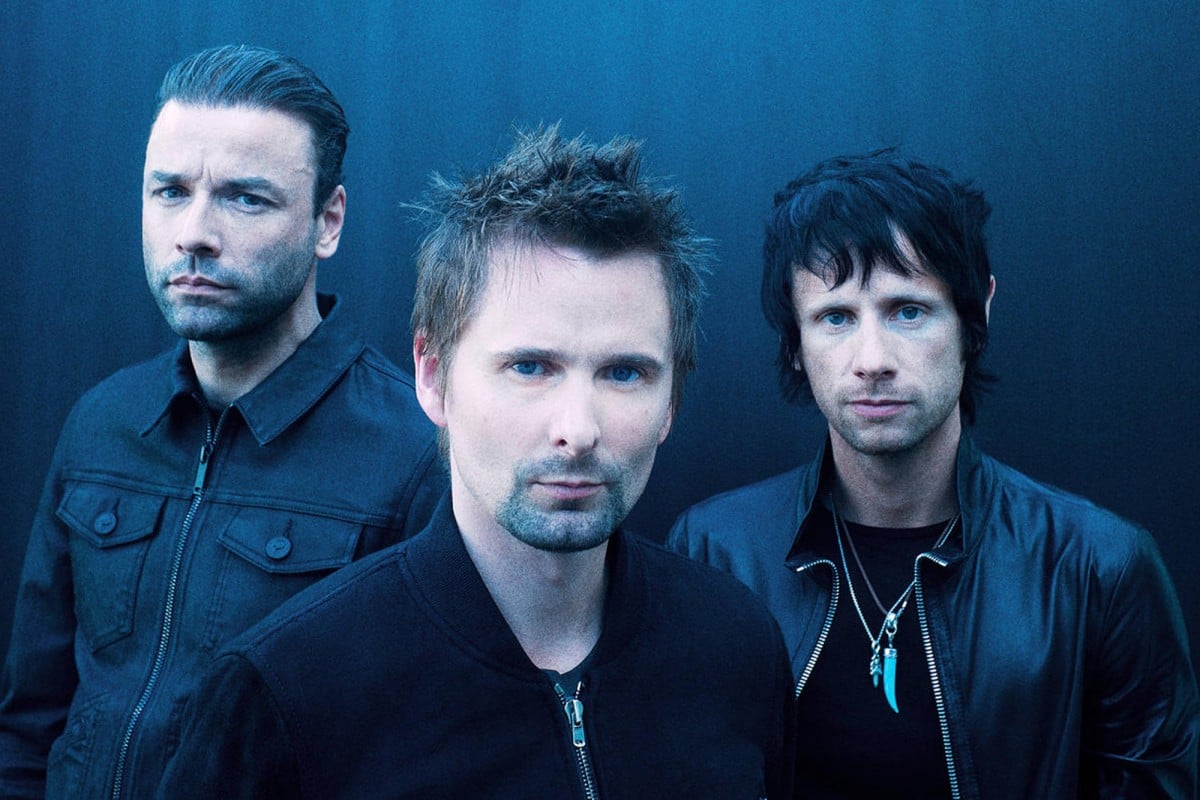
Muse's new album Drones goes back to their rock roots
There's a lot of super happy pop music out there today, but not everyone's quite so optimistic. With Muse, it's all Drones and conspiracies
 Muse (from left) Christopher Wolstenholme, Matthew Bellamy, Dominic Howard.
Muse (from left) Christopher Wolstenholme, Matthew Bellamy, Dominic Howard.British rock band Muse is known for their extravagance. Remember that huge, shape-shifting inverted pyramid made up of LED screens that hung above the band during The 2nd Law world tour three years ago? But with their seventh album, Drones, set to be released on June 8, they've decided to keep things simple.
Since the 2001 release of their second album, Origin of Symmetry, the electronic influence over the band has only become stronger.
"I think with The 2nd Law it hit its peak," bassist Christopher Wolstenholme tells Young Post on behalf of his band mates over the phone. "There were certain moments where the guitar-bass-drum side of things kind of took a backseat." With this album, the band wanted to return to their strengths: being a three-piece rock band.
From their formation in 1994 when they were just 15, Wolstenholme, frontman and guitarist Matthew Bellamy, and drummer Dominic Howard had always preferred the heavier side of rock music. They preferred American bands such as Nirvana, Weezer, The Smashing Pumpkins and Rage Against the Machine, rather than the Britpop movement dominating their country at the time. "We felt quite disconnected from that," says Wolstenholme. "There were very few English bands that were doing heavier things. To this day, there aren't an awful lot of really good heavy [rock] bands in the mainstream."
While recording Drones, the band went back to listening to their earliest influences for a more stripped-back sound. "We needed to make sure the fundamental part of each song was about the guitar, bass and drums. That was where the power came from."
"We'll always be a band that will experiment," Wolstenholme assures. "Maybe on the album after this one … we'll do no guitar-bass-drums."
For now, though, they are enjoying being in their comfort zone. The trio were able to record the bulk of the album live (this hasn't happened for a while), playing together as they would on stage. It made the album a relatively easy one to make, too.
The most complicated song for Wolstenholme is The Globalist, a 12-minute song. Void of any repetitions of the usual verse-chorus song arrangement, the track starts slow, swells into a heavy rock section, then simmers down to a soft ballad. Rich with complex instrumentation, it was a challenge to blend all the sections together. "You know when you listen to classical music where it has movements? That takes you on a journey."
Although the album's conspiracy theme is in line with what Bellamy has been writing over the years, it's the first time they are using the whole album to tell a complete story from start to finish - with an ambiguous ending, of course.
Opening with the angry Dead Inside, inspired by Bellamy's breakup with fiancée Kate Hudson, the story begins with a person being abused and completely broken down. In Psycho, he is brainwashed into a killing machine despite his pleas for help. "Save me from the ghosts and shadows before they eat my soul," sings Bellamy in Mercy. This helpless feeling turns to a subdued anger in Reapers and The Handler, before an attempt to break away in Defector and Revolt.
The high-energy music calms down in Aftermath. The protagonist is tired and lonely, and as a string orchestral music plays, it's hard not to think of the hopeless world in George Orwell's 1984.
The final song, Drones, is an a capella piece. The layers of voices overlap so much it's impossible to decipher exactly what the lyrics are. You can't work out if the song is incredibly sad or incredibly happy. It's up to the listener to decide, says Wolstenholme.
But is he optimistic himself? "No, not at all," says the father of six. "You see things on the news and you ask, 'Where are we heading?' But I'm not sure what's happening now is much different from 500 years ago, the only difference is you now have 24-hour news channels and it's in our faces … And, you know, we're still here."
Muse performs at AsiaWorld Expo on September 28